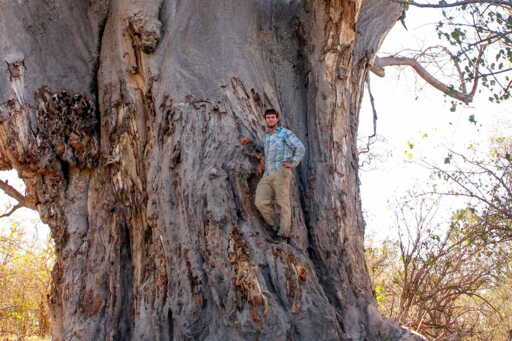Some revolutions begin not with technology, but with a feeling. For Gregg Treinish, that feeling was guilt. He was spending years on long wilderness expeditions—crossing ranges, sleeping rough, watching the world’s edges—and began to wonder what any of it added up to. “I was spending years in the wilderness, doing long expeditions, and I began to feel selfish for being out there without making a difference,” he says. “I wanted to stay in the outdoors, but I also wanted my time to matter and to contribute to something bigger than myself.” Gregg Treinish in the Oakavango. National Geographic Society’s Okavango Wilderness Project carried out extensive exploration and data-collection across the Okavango River Basin — from the Angolan highlands through Namibia to the Okavango Delta in Botswana, producing one of the most detailed scientific baselines ever gathered for the ecosystem. Photo courtesy of Adventure Scientists. That reckoning became Adventure Scientists, an organization that mobilizes outdoor enthusiasts to collect data for research and conservation. Founded more than a decade ago, it has since grown from an idea scribbled between treks into an operation that partners with agencies, universities, and businesses to fill data gaps in biodiversity, climate, forests, and freshwater. Its volunteers—hikers, climbers, divers, paddlers—now deliver samples and observations that influence policy, corporate practices, and scientific understanding. Treinish insists the success of the project has little to do with personal brilliance. “I have no special skills as a scientist or as an adventurer,” he says. “That’s exactly why I believed this idea…This article was originally published on Mongabay
From Conservation news via this RSS feed


